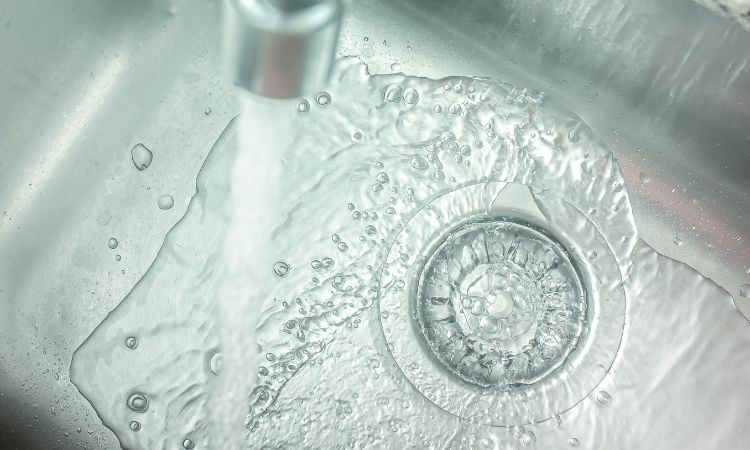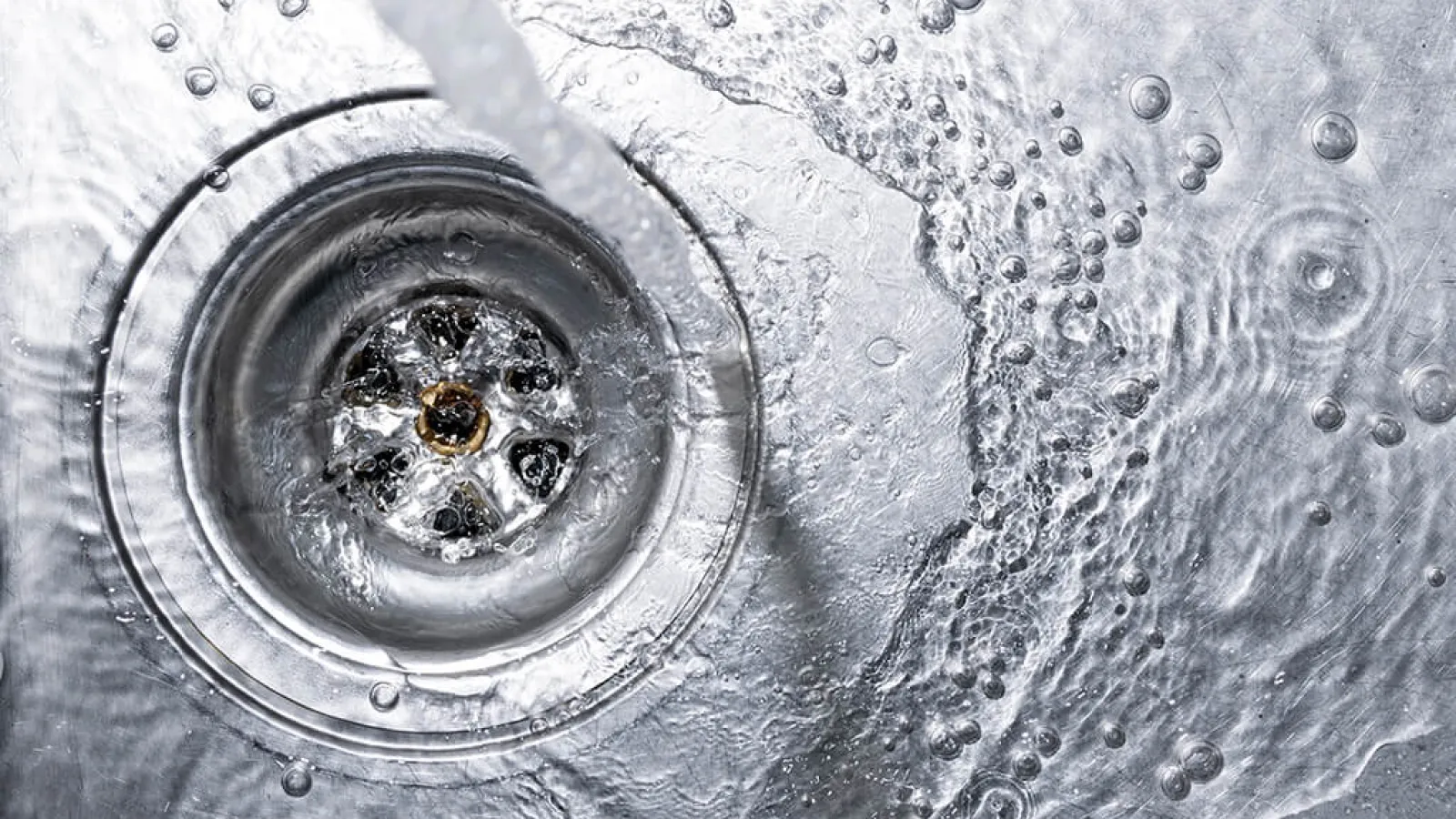Quick Fixes For A Slow-Draining Sink
Quick Fixes For A Slow-Draining Sink
Blog Article
How do you actually feel in regards to How to Fix a Slow Draining Sink?

Introduction
We've all existed: You're cleaning your teeth or washing your hands, and you observe the water pooling in the sink. Instead of promptly swirling down the drain, it remains, transforming your once-refreshing early morning regimen into a small overload scene. A slow-draining sink isn't just bothersome; it's commonly an indicator of larger pipes concerns prowling underneath the surface area. The bright side is that the majority of slow-draining sinks can be taken care of with a little knowledge, a couple of standard devices, and some persistence. Prepared to tackle this task head-on? Allow's roll up our sleeves and dive right in.
Recognizing the Root Causes Of a Slow-Draining Sink
Before you begin poking around in your pipelines, it helps to know what may be creating the stagnation. Understanding the root cause makes it easier to select the best solution.
Usual Perpetrators Behind Slow Drainage
So, what's clogging things up? Normally, it's a mixture of daily particles-- think hair, soap residue, toothpaste deposit, and leftover food fragments. Gradually, these tiny bits accumulate and hold on to the pipe wall surfaces, slowly tightening the passage and making it harder for water to go through. In many cases, natural resource from difficult water can likewise contribute to the gunk, developing the ideal storm for persistent blockages.
When is it Time to Take Action?
If you notice the water draining slower than normal, it's a great concept to interfere earlier as opposed to later. Waiting too long could lead to finish blockages, unpleasant smells, or even pipe damage. If the water takes greater than a few secs to remove after shutting off the faucet, consider it a red flag and prepare yourself to put on your DIY hat.
Devices and Materials You'll Require
The right tools make all the distinction. The good news is, you won't need a fully stocked plumbing professional's van to get the job done.
Necessary Devices for Do It Yourself Services
A plunger is your go-to beginning point. A small, sink-sized bettor creates suction that can dislodge small clogs. For more persistent clogs, a drain serpent (often called a plumber's auger) works wonders. A pair of gloves, a flashlight, and maybe a set of protective safety glasses are also handy.
Recommended Cleaning Solutions
Moderate meal soap and hot water can aid break down greasy accumulation. A blend of baking soft drink and vinegar is a time-tested home remedy, and chemical cleansers use a more eco-friendly technique. Maintain chemical drain cleaners as a last resort, as they can be extreme on your pipelines.
Safety First: Safety Measures and Prep work
Prior to you launch into unclogging mode, think about security. You're taking care of possibly filthy water and debris, so slip on a set of handwear covers. If you're using chemical cleansers, guarantee the space is well-ventilated and follow the instructions on the tag.
Safety Gear and Work Area Arrangement
Put down some old towels or rags around the sink area to capture sprinkles. Remove any type of items that may get in your means, like soap dispensers or toothbrush holders. Ensure you have great lights-- get a flashlight if required.
Step-by-Step Guide to Dealing With a Slow-Draining Sink
Now, let's enter into the nitty-gritty. This detailed process will guide you through simple techniques to recover your sink's drainage.
Action 1: Eliminate and Tidy the Stopper
Usually, the stopper (that tiny plug you lower to block water) is the initial wrongdoer. Remove it carefully and wipe any kind of hair or crud caught around its base. Rinse it thoroughly prior to putting it back in place.
Action 2: Utilize a Plunger to Displace Debris
Got that plunger ready? Position it over the drainpipe and give it a few firm pumps. The idea is to produce suction that can loosen up any obstruction. If you see littles particles drifting up, you get on the ideal track.
Step 3: Attempt a Drainpipe Serpent or Cable Hanger
If the plunger does not do the trick, it's time to bring out the drainpipe serpent. Carefully feed it right into the drain and twist as you go. You could really feel some resistance-- that's likely the blockage. Keep turning and pulling till you eliminate the obstruction. If you don't have a drain serpent, a straightened wire wall mount can work in a pinch.
Tip 4: Apply a DIY Drainpipe Cleanser
A natural cleaner made from baking soft drink and vinegar can break down residual crud. Pour half a cup of cooking soda right into the drain, complied with by half a mug of vinegar. Allow it fizz for about 15 minutes, after that flush with warm water. This chain reaction typically does marvels for small obstructions.
Tip 5: Rebuild and Test the Sink
Put whatever back together and run the faucet. Does the water now swirl away at a commendable speed? If yes, offer on your own a pat on the back. Otherwise, don't anguish-- there are still a few more dress up your sleeve.
Alternate Techniques for Stubborn Clogs
Not all blockages are produced equal. If your sink still declines to comply, think about these alternative solutions.
Sodium Bicarbonate and Vinegar Technique
We already discussed this, however it's worth noting once more. This gentle, environment-friendly approach is safer than chemical cleansers and commonly quite reliable.
Enzymatic Drain Cleansers
Enzyme-based cleaners use all-natural bacteria to digest raw material. They're an exceptional option if you're seeking to stay clear of extreme chemicals. Simply bear in mind, they may take a bit longer to function their magic.
Chemical Drainpipe Cleansers: Benefits And Drawbacks
Chemical cleansers can blow up via tough blockages quick, however they're not without disadvantages. They can generate heat and fumes, damage pipes if used excessively, and pose environmental risks. Utilize them moderately, and always comply with the directions meticulously.
Safety Nets to Keep Your Sink Flowing
Prevention is the best treatment. By embracing a couple of basic practices, you can keep your sink from reducing in the first place.
Regular Cleansing Routines
Clean down the sink basin and component area consistently. Eliminate hair or food fragments before they have an opportunity to wash down the drain.
Avoiding Hazardous Substances Down The Tubes
Reconsider before discarding coffee grounds, grease, or coarse vegetable scraps down the sink. These offenders hold on to pipeline wall surfaces, creating blockages gradually.
Routine Maintenance Checks
Arrange a fast month-to-month examination. Run hot water through the sink for a couple of mins, taking note of the flow. If it appears slow, act quick prior to it ends up being a full-on blockage.
When to Call a Specialist Plumber
Sometimes, no matter just how tough you try, that clog simply will not budge. That's when it's time to bring in the pros.
Indicators That Show a Much More Major Concern
If your sink drains pipes slowly despite numerous efforts, or if you see water supporting in other fixtures (like your shower or commode), you may have an extra major pipes issue hiding much deeper in the system.
Stabilizing DIY Initiatives with Expert Assistance
While do it yourself can save you money and use a feeling of accomplishment, there's no pity in calling a professional. A specialist plumbing technician can assess your entire pipes configuration, making sure there's no underlying damages or lasting trouble that can cost you much more in the future.
Comparing Costs and Long-Term Solutions
Before making a decision, think about the big picture. An inexpensive, quick fix may solve the problem momentarily, but purchasing a much more permanent option might save you cash and stress and anxiety over time.
Weighing the Expenditures of Do It Yourself vs. Specialist Solutions
DIY solutions typically cost little bit more than the rate of a plunger or a container of baking soft drink. Professional services, on the other hand, come with a price but might prevent repeated concerns and expensive repairs later on.
Investing in High Quality Fixtures and Upgrades
If your sink's style contributes to regular blockages, it could be worth updating to higher-quality fixtures or changing the pipes layout. Consider this a financial investment in your house's performance and comfort.
Final thought
A slow-draining sink can feel like a small irritation, however it's often an indicator that your plumbing requires a little tender loving care. By understanding the source, using the right tools and strategies, and committing to straightforward preventive measures, you can maintain your sink moving freely. And when all else fails, never wait to contact a specialist-- your home's pipes deserves the financial investment in treatment and upkeep.
Three Common Ways to Fix a Slow Drain
Baking Soda Method
Boil a full pot of water. Measure out cup of baking soda and pour it down the drain. Then take cup of the magical cleansing substance known as white vinegar and drop that down there too. Allow the mixture to fizz in the drain for five minutes as the vinegar and baking soda combine. Now dump in that whole pot of boiling water. This combination of cleaning substances should clear out anything that is causing your sink to drain slowly. If it doesn t...
Zip-It
If the baking soda method doesn t clear out your drain, it may be because a significant amount of hair and/or other debris has collected there and you need to remove it. Purchase a Zip-It tool at any home improvement or hardware store and insert it into your drain. It will catch any collected hair or debris that s blocking the flow of water. Pull it out. If it s got a big clump of hair, etc. on the end, you ve probably got your culprit.
Drain Cleaner
If these methods don t work, there is the standard drain cleaner that you can also buy in a hardware store or even your local grocery store. It s better if you can use a household solution, but these drain cleaners often work in a pinch. They re very simple to use. You generally just dump them in your drain and wait. If even this method is not effective, it may be time to call the plumber.
https://www.mrrooter.com/oneida/about-us/blog/2017/july/three-common-ways-to-fix-a-slow-drain/

I recently found that blog post on 7 Ways To Fix A Slow-Draining Sink Before You Call A Plumber while doing a search on the search engines. Do you know about another individual who is looking into the niche? Feel free to promote it. Thank-you for going through it.
Call Today Report this page